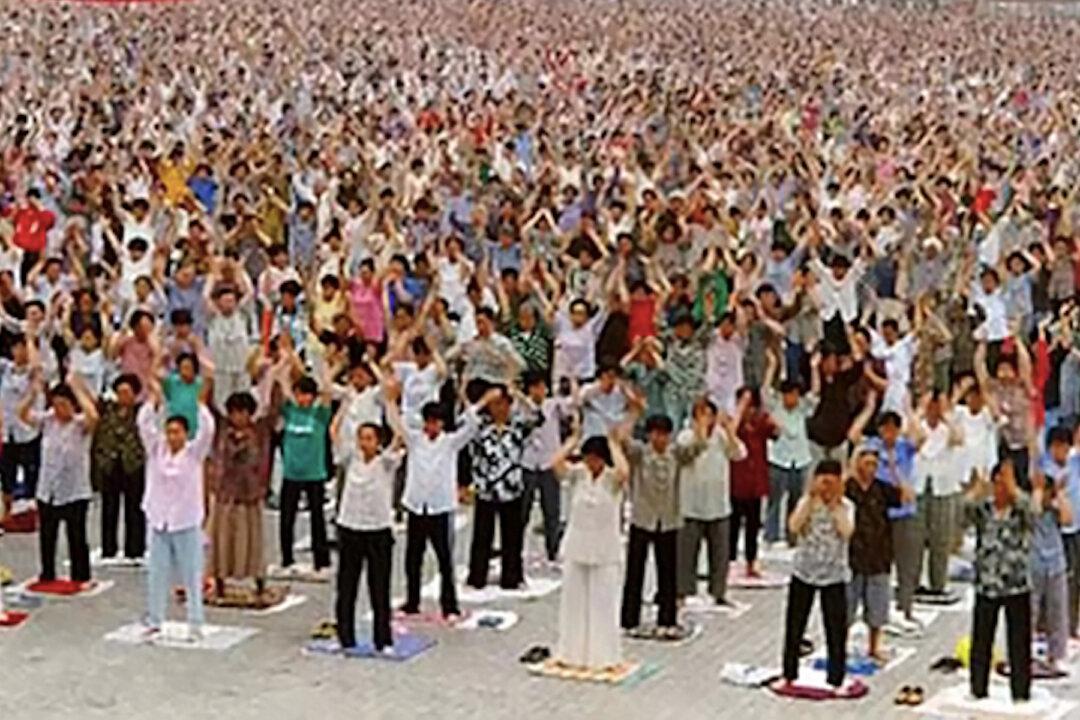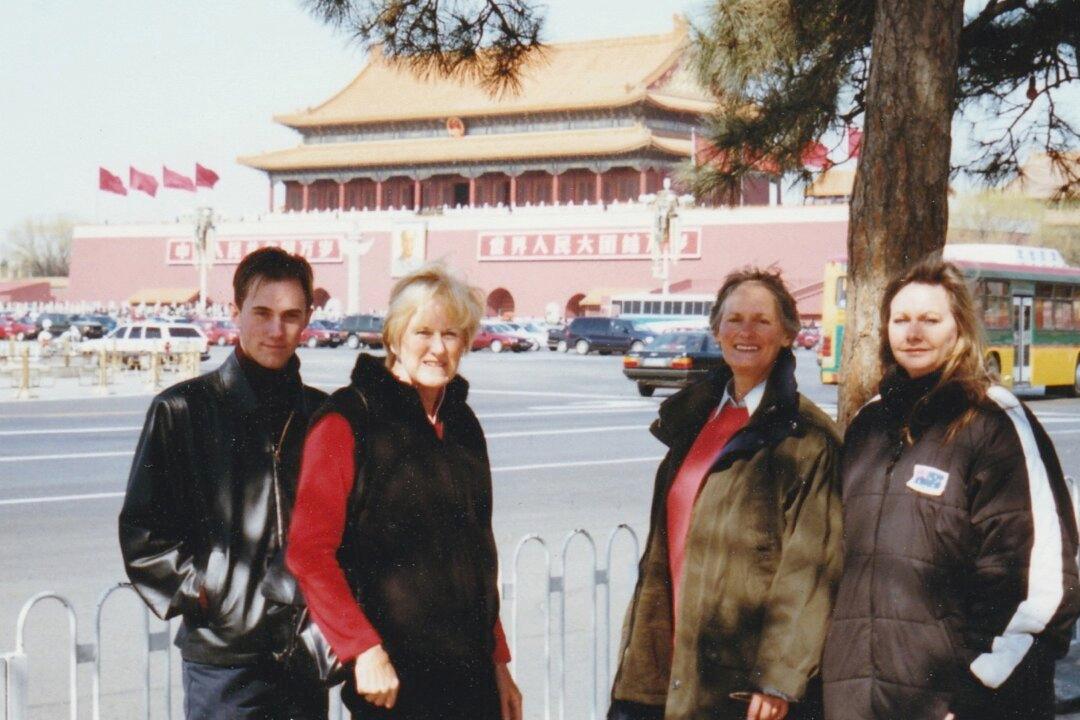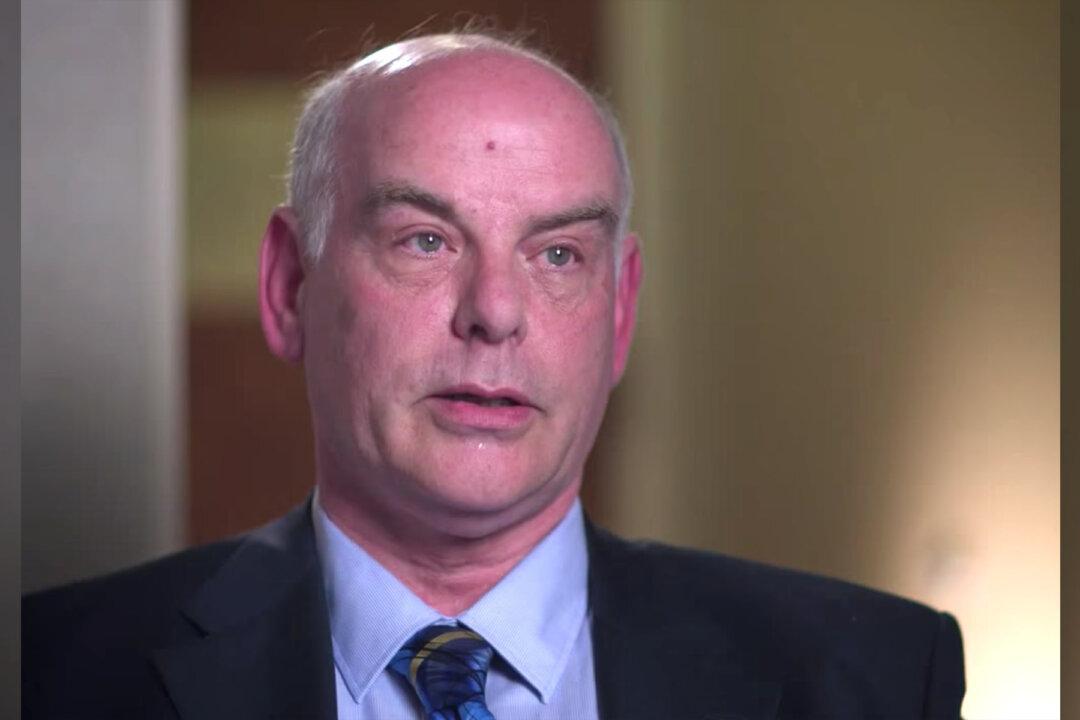If you’ve ever been to China, you’ve probably seen that people enjoy practicing different forms of qigong (energy) exercises outside, mostly in parks. However, back in the early 1990s, there was one slow-moving meditative exercise system that was becoming increasingly popular before almost all of its practitioners disappeared overnight.
Tens of thousands of people, from all strata of society and of all ages, who came together each morning in different public parks throughout communist China to perform this qigong’s gentle exercises for an hour or two before heading off to work or school, were suddenly nowhere to be seen after the fateful day of July 20, 1999.
What was this practice? Why were people so drawn to this particular meditation system? And why had all these common, law-abiding citizens disappeared?
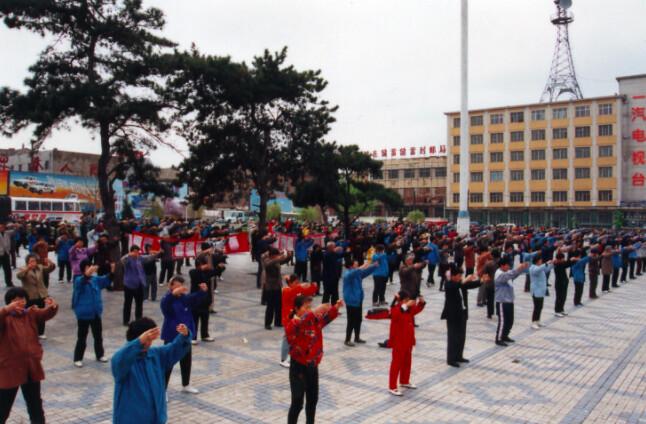
The origins of qigong in China run deep, and people are most drawn to qigong for its positive effect on one’s health. Qigong is a system of Chinese meditative exercises, and there are many kinds. But one form of qigong emerged in 1992, which was completely free and encouraged people to improve themselves from within.
People embraced Falun Dafa, not just for its meditative exercises but also for its moral-teaching component, which can be summarized in three words—“truthfulness, compassion, and tolerance.”
Those with bad tempers were able to improve themselves and become more tolerant. Those with strained relationships with their spouse or family members were able to achieve a harmonious home environment. Those who were students or workers would focus on how to be better students or better workers. These people were inspired to conduct themselves according to higher moral standards.
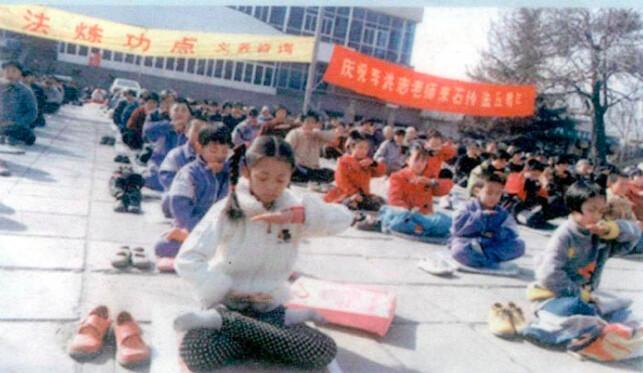
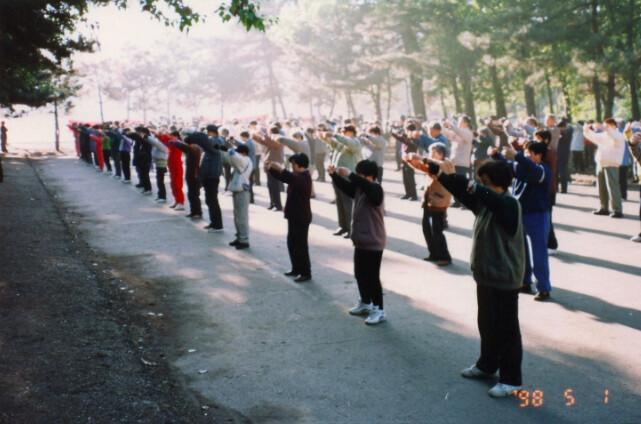
Merely one year after introducing the spiritual system to the public, Mr. Li won all the top prizes at the 1993 Oriental Health Expo held in Beijing, including the “Cutting Edge Scientific Progress Award” and the “Special Gold Prize,” and was awarded the title of “Most Popular Qigong Master.” Falun Dafa was also recognized as the “Star Qigong” school.
Mr. Li is a four-time Nobel Peace Prize nominee and was nominated by the European Parliament for the Sakharov Prize for Freedom of Thought. He is also the recipient of Freedom House’s International Religious Freedom Award, the report stated.
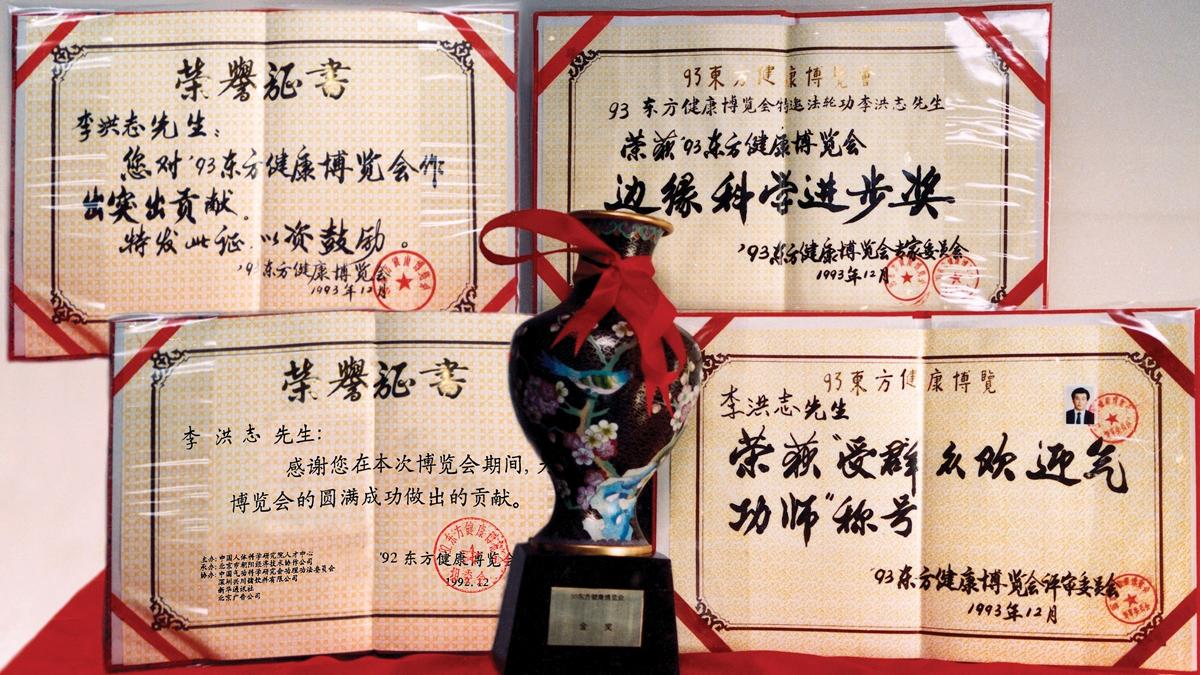
Back then, the Chinese Communist Party’s (CCP) state-run media was reporting on the virtues of Falun Dafa and estimated the number of practitioners by 1999 to be around 70 to 100 million.
This mind-body discipline spread by word of mouth, and even high-ranking officials in the Chinese regime were practicing it.
Yet, all this changed when former communist party leader Jiang Zemin perceived Falun Dafa’s popularity as a threat to the regime’s totalitarian rule and its atheistic Marxist ideologies. Jiang ordered the regime’s security forces to “eradicate” the peaceful practice, and an unprecedented misinformation campaign involving China’s entire state-run media apparatus was put into full force, with the intention to turn public opinion against Falun Dafa.
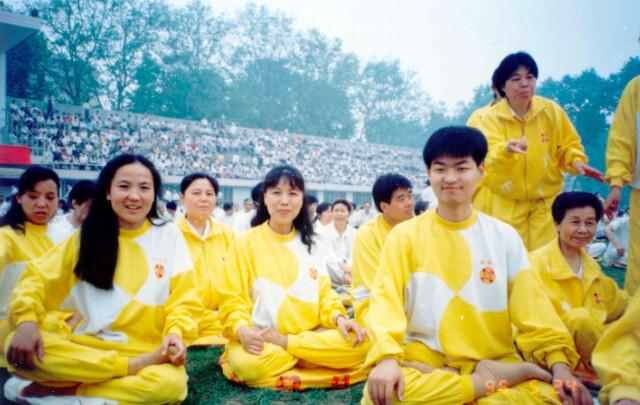
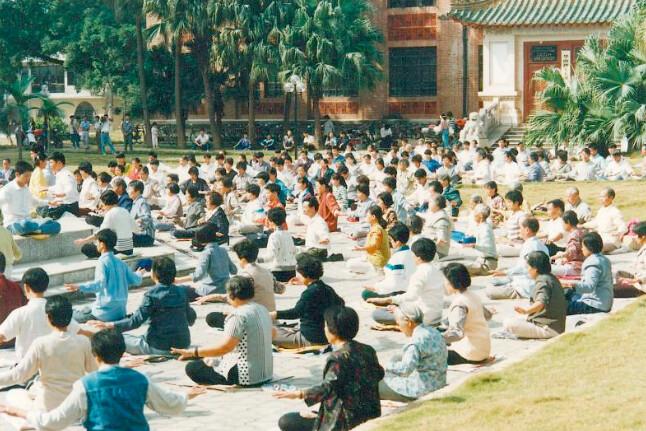
When this genocidal campaign of persecution began, terror swept across China.
Just like that, 100 million practitioners who used to enjoy practicing these meditative exercises in parks nationwide weren’t able to do so anymore.
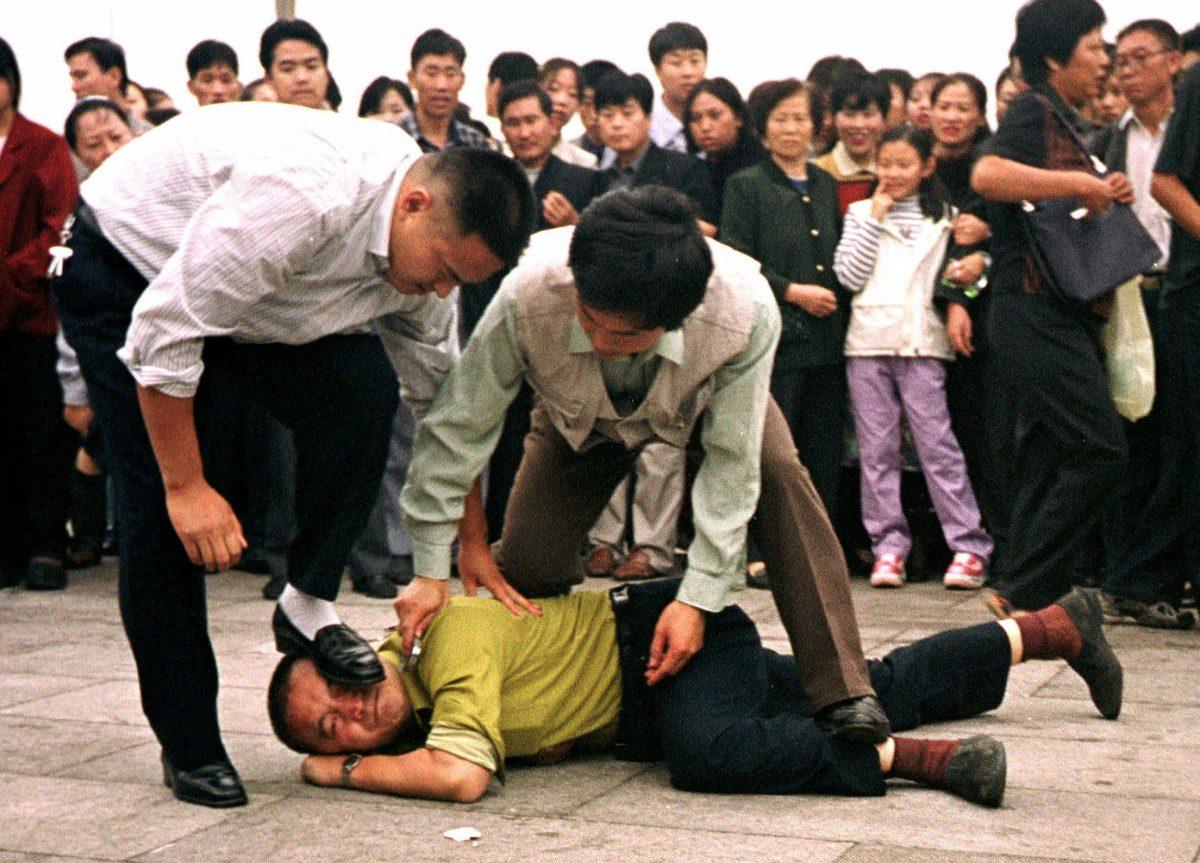
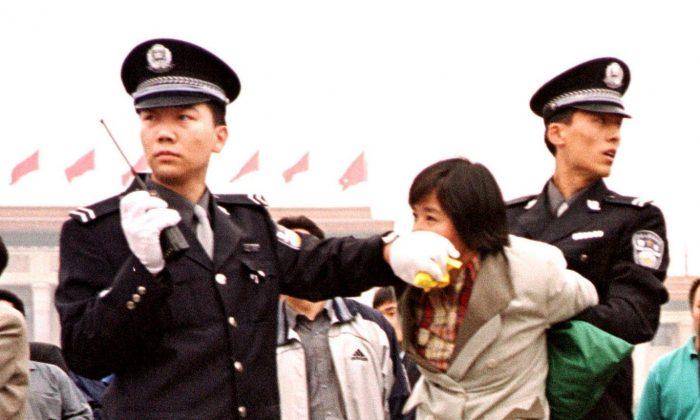

More shockingly, the CCP is using the countless Falun Gong practitioners who are unlawfully detained in jails as an organ pool. Many practitioners have testified to having their blood drawn and being cataloged.
Bai Shuzhong, the former health minister of the General Logistics Department, said to undercover human rights investigators last year in a telephone call: “At the time, it was Chairman Jiang. There was an instruction to start this thing, organ transplantation.”
The report said that Bai, who was speaking at a time of political upheaval, had been led to believe that he was talking to internal Party investigators. He said that it was Jiang who “gave an instruction … to sell kidneys, do operations,” and “after Chairman Jiang issued the order, we all did a lot of anti-Falun Gong work.”
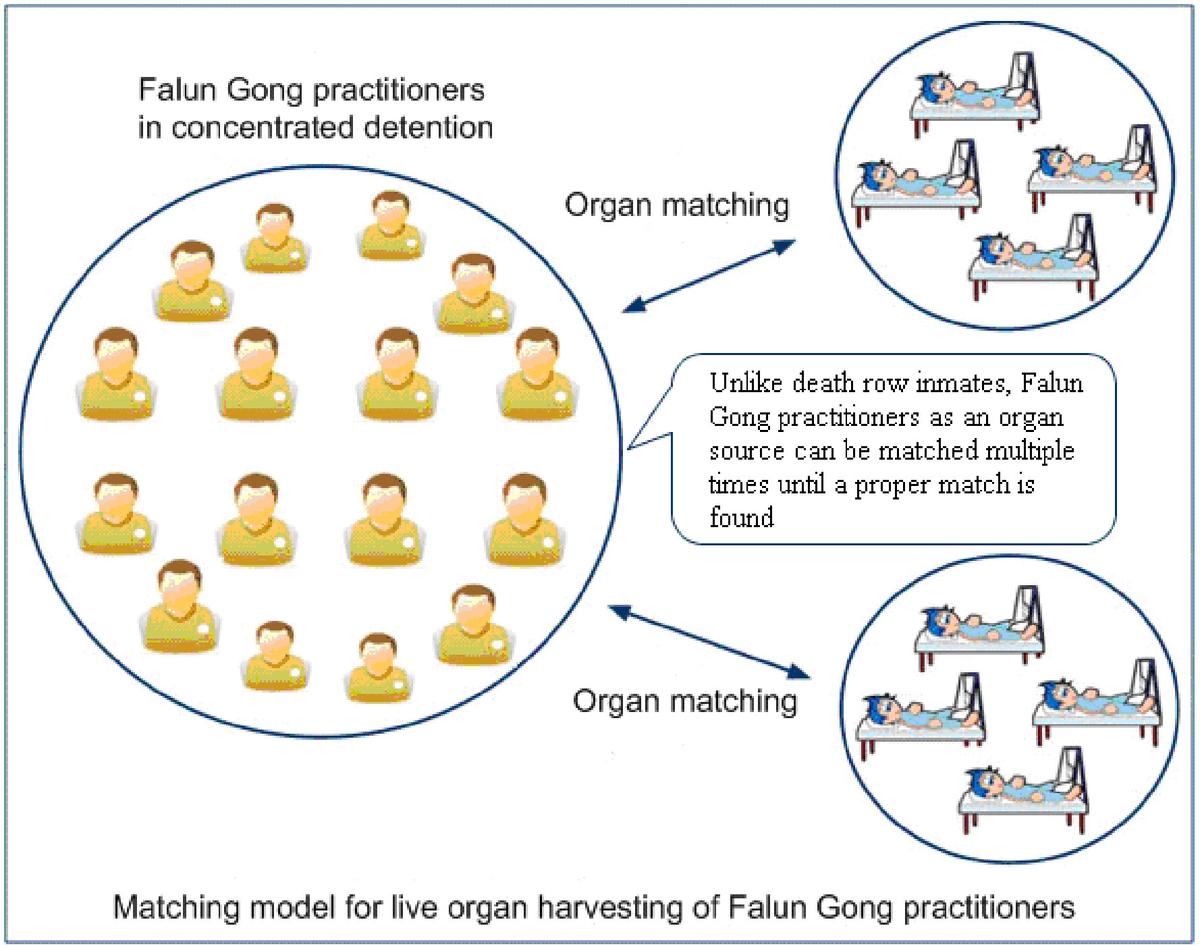
Investigative journalist Ethan Gutmann labeled it as “a new form of genocide.”
The judgment took note of evidence like extremely short wait times offered by hospitals and blood testing of imprisoned Falun Dafa practitioners and other ethnic minorities like Uyghurs.
“Such short-time availability [of organs] could only occur if there was a bank of potential living donors who could be sacrificed to order,” the judgment said.
“We are deeply concerned by reports of discriminatory treatment of the prisoners or detainees based on their ethnicity and religion or belief,” the experts said.
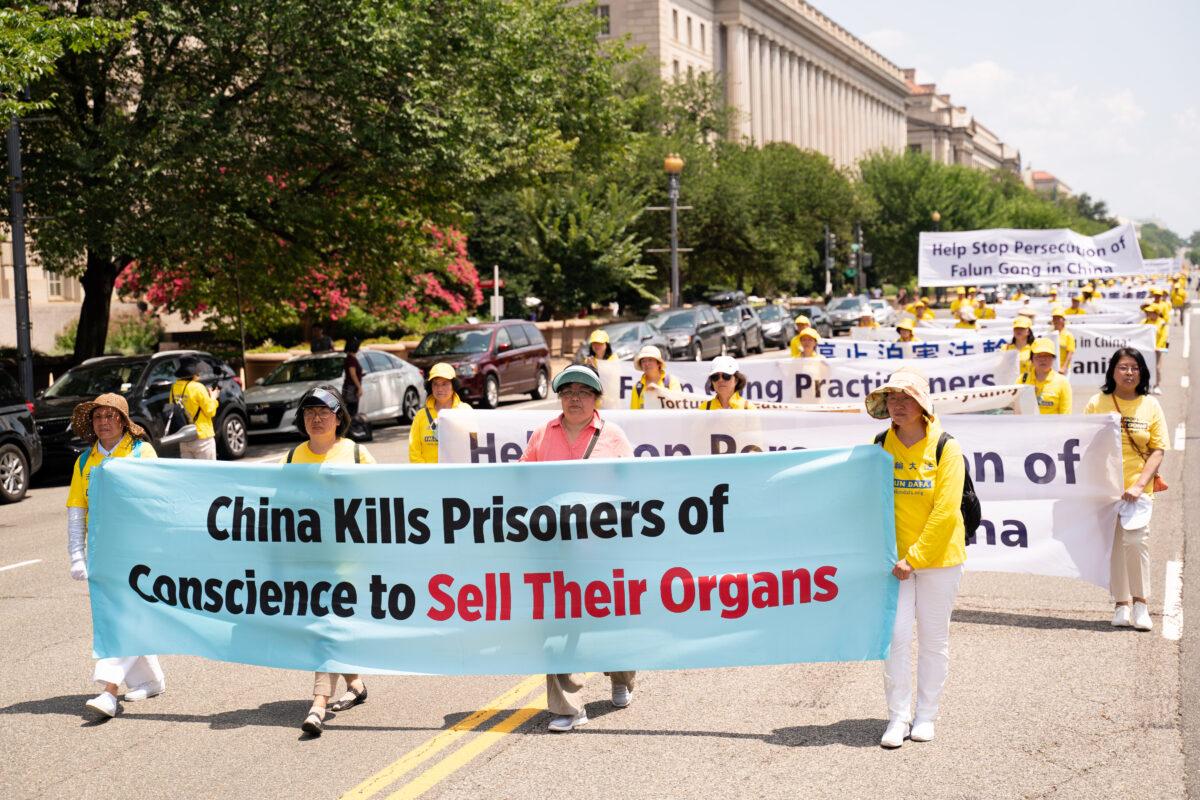

Marking the 22nd year of the start of the persecution in China, around 1,500 Falun Dafa practitioners congregated in Washington on July 16 to call for an end to the Chinese communist regime’s decades-long persecution of the spiritual practice.

